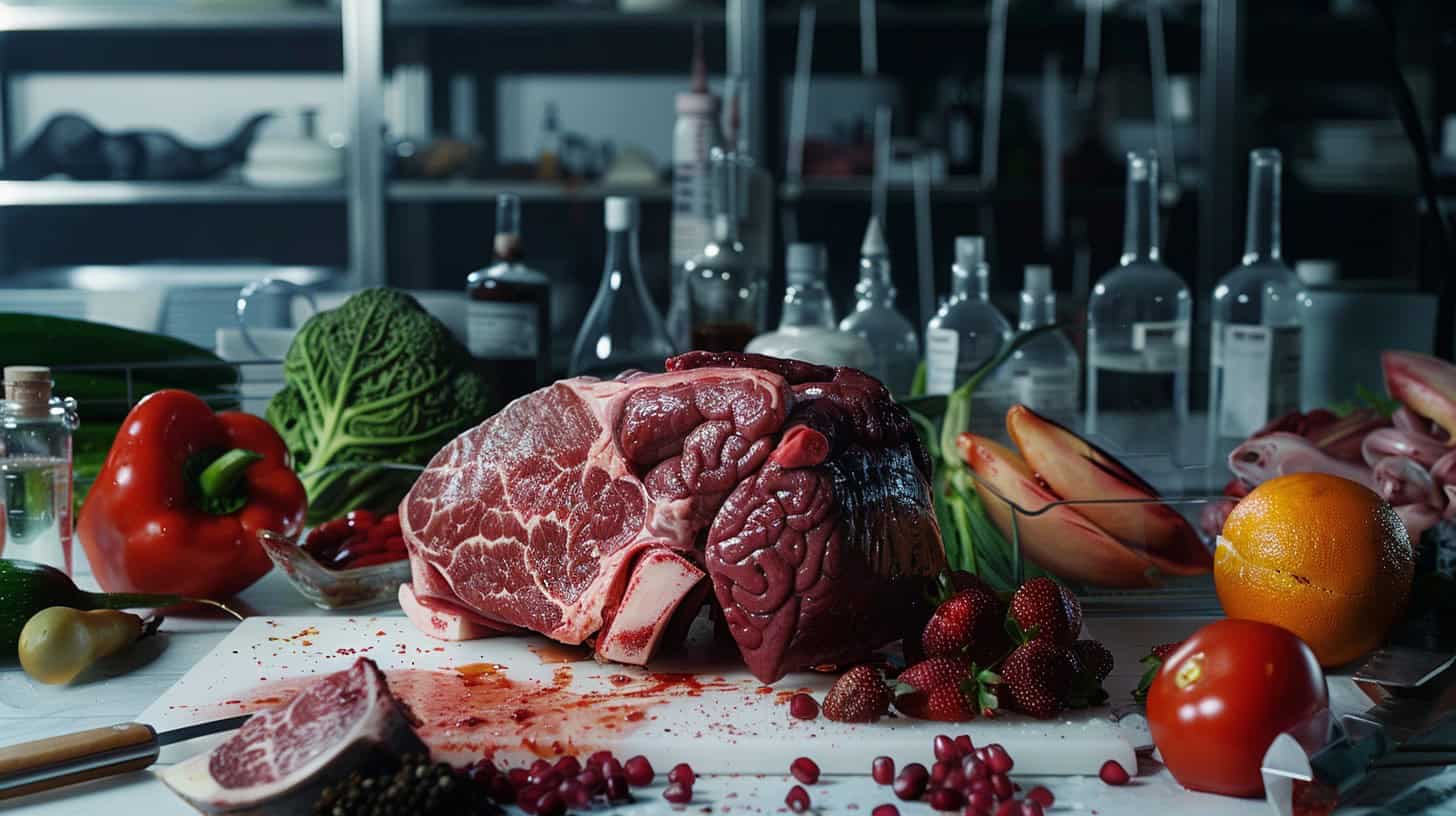Testosterone plays a vital role in various bodily functions—impacting everything from energy levels to muscle growth. 1 But does it make you hungry? Recent studies have delved into this question, revealing intriguing insights that challenge common beliefs about testosterone’s influence on appetite. 2
With years of experience in health science and hormone research, I can guide you through the surprising truths behind testosterone and hunger. We’ll explore how testosterone supplementation affects ghrelin levels—the hormone responsible for stimulating appetite—and what this means for men undergoing therapy or experiencing hormonal changes. 3 Keep reading to uncover these crucial details!
Key Takeaways
Testosterone influences hunger by raising ghrelin levels, the hormone that signals hunger to your brain. Higher testosterone can increase appetite.
Hormone Replacement Therapy (HRT), including testosterone supplements, often results in increased hunger as the body demands more fuel for higher activity and muscle growth.
Regular physical activity, such as high-intensity workouts, boosts testosterone levels and helps manage energy balance effectively.
A balanced diet rich in proteins and green vegetables can naturally boost hormone levels, while processed foods high in sugar and unhealthy fats can lower them.
Monitoring diet carefully during testosterone therapy is crucial; this includes eating whole foods, avoiding junk food, staying hydrated, exercising regularly, and consulting with health professionals if needed.
Table of Contents
Exploring Testosterone and Its Functions
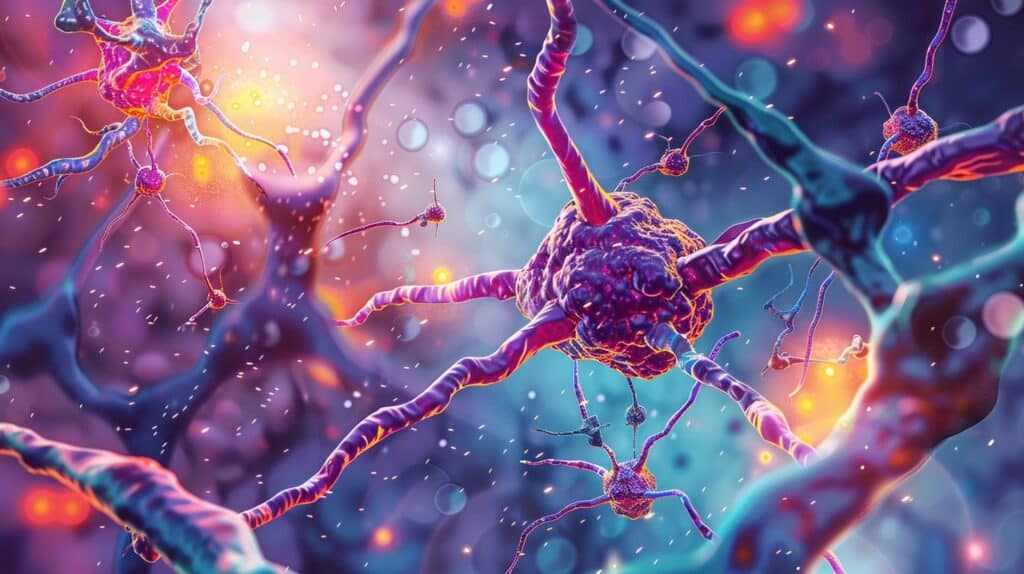
Testosterone helps many body functions. It boosts metabolism and energy levels.
Role in Bodily Functions
Testosterone is key for men’s bone health. It affects bone density by converting to estrogen. High levels keep bones strong, while low levels lead to brittle bones and osteoporosis. 1
The hormone also impacts muscle mass and energy. Decreased testosterone causes muscle loss and fatigue, affecting overall body composition. As men age, their testosterone drops, which can lead to these issues. 2
Impact on Metabolism and Energy Levels
Testosterone plays a key role in carbohydrate, fat, and protein metabolism. It controls the expression of regulatory proteins involved in these processes. 3 Deficiency is linked to increased fat mass and reduced insulin sensitivity.
Low testosterone levels contribute to obesity, metabolic syndrome, and type 2 diabetes.
Replacement therapy can improve insulin resistance and reduce body fat mass and cholesterol. 3 Testosterone affects energy levels by boosting metabolism. Healthy men with higher testosterone have more energy because their bodies use nutrients more efficiently. 4 This effect helps maintain optimal energy balance throughout daily activities.
Next: Linking Testosterone to Appetite
Linking Testosterone to Appetite
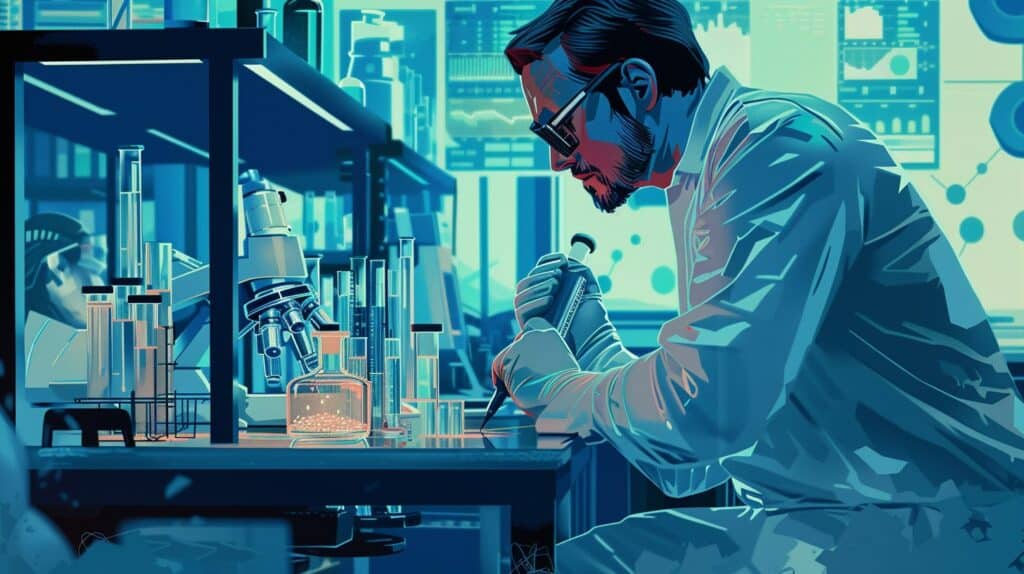
Hormones control our appetite. Testosterone impacts ghrelin, the “hunger hormone.
Hormones and Their Influence on Hunger
Testosterone and other hormones can change how hungry you feel. Testosterone raises levels of ghrelin, a hormone that makes you want to eat more. Ghrelin is often called the “hunger hormone” because it tells your brain when your stomach is empty.
Higher testosterone increases hunger through higher ghrelin levels.
This increase in appetite helps people with high testosterone keep their energy up. Hormone replacement therapy, like taking extra testosterone, often leads to feeling hungrier. This is because the body needs more fuel for higher activity and muscle growth during treatment. 5
Testosterone’s Effect on Ghrelin Levels
Ghrelin is known as the “hunger hormone.” It tells your brain when you’re hungry. A study showed that fasting acyl ghrelin concentrations went up in the placebo group during energy deficit.
This means they felt hungrier. 4
In contrast, men who received testosterone supplementation saw no change in their ghrelin levels. This indicates that testosterone might help control hunger by keeping ghrelin stable… leading to some interesting effects for those considering testosterone therapy. 5
Analyzing further details on appetite changes with supplementation can yield more insights.
Analyzing Testosterone Supplementation Effects
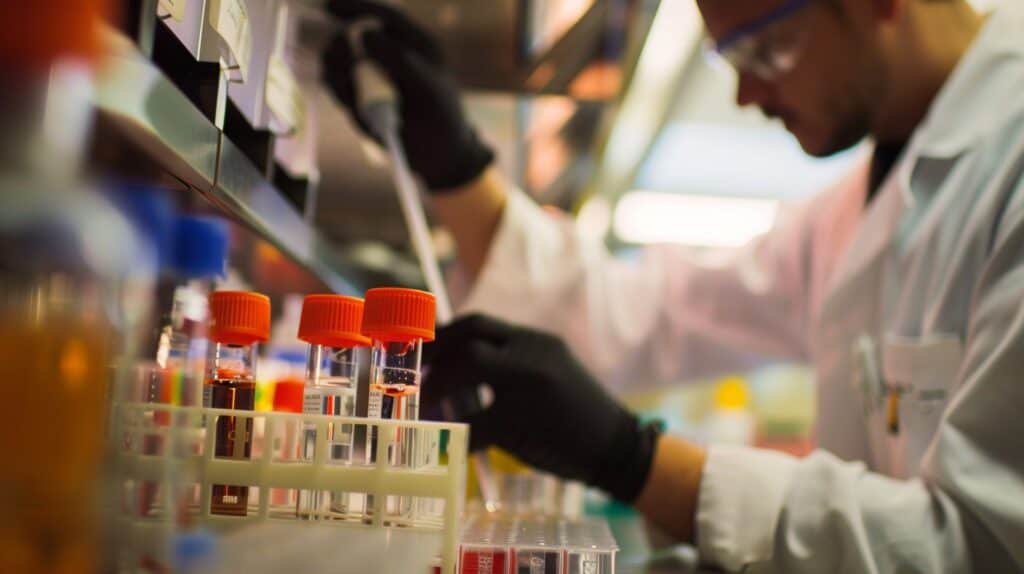
Testosterone supplements can change your appetite. Some studies show that people feel hungrier when taking these supplements.
Appetite Changes with Supplementation
Taking testosterone supplements can change how you feel about food. These changes happen because hormones, like ghrelin, control hunger. Increased lean body mass during an energy deficit was linked to higher levels of fasting glucose in the TEST group at the end-of-study (EOS).
This shows that while muscle mass grows, your blood sugar might also rise.
Research says testosterone prevents a rise in ghrelin but doesn’t stop you from feeling hungrier. Some men may notice they want to eat more when taking these supplements. 5 If this sounds familiar, and you’re looking for “enclomiphene near me,” keep reading to understand how hormones impact hunger further. 6
Research on Testosterone and Hunger
Studies reveal that testosterone affects hunger. Blood samples collected from subjects on days 7, 43, and at the end of the study show changes in hormone levels. Measurements include fasting insulin, leptin, glucose, acyl ghrelin, and des-acyl ghrelin.
Appetite ratings also provide key insights. Researchers noticed shifts in hunger levels linked to testosterone changes. Some men reported increased appetite during high testosterone phases. 5 The research suggests a strong connection between these hormones and how hungry someone feels. 4
Testosterone Therapy and Appetite Variations
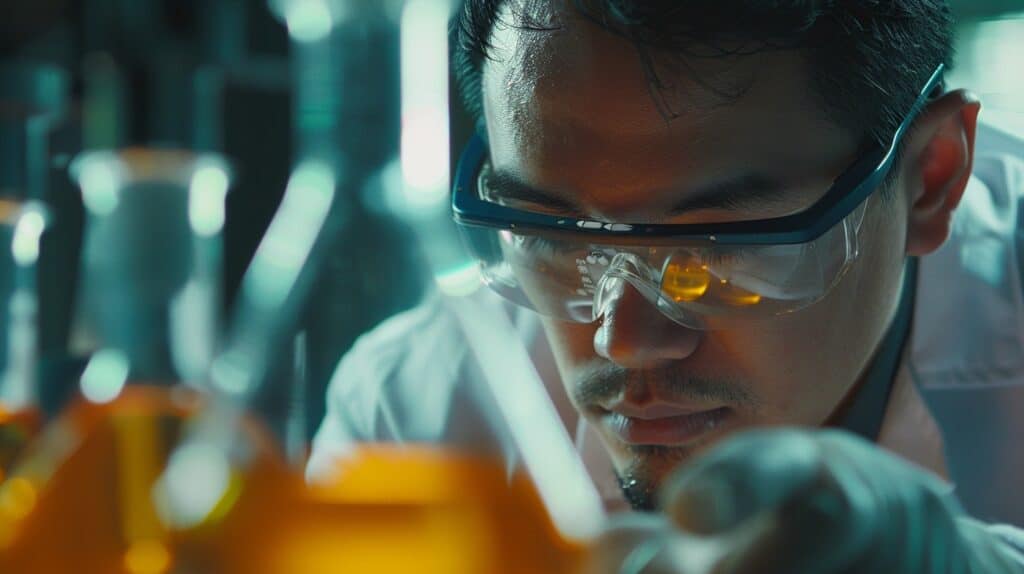
Testosterone therapy can impact your hunger levels. Some people feel hungrier when their testosterone goes up.
Appetite Increase with Hormone Replacement Therapy
Hormone replacement therapy (HRT) can make you feel hungrier. It increases your metabolic rate and raises ghrelin levels—an orexigenic hormone that signals hunger. 5 This means you’ll need more food to keep up with the energy your body uses.
Higher testosterone levels help build muscle mass, which also requires more calories. For instance, eugonadal men often notice a need for extra intake when undergoing testosterone enanthate treatment.
If you’re managing weight during HRT, monitoring diet and keeping active is key. 4
To manage appetite fluctuations related to testosterone levels…
Appetite Fluctuations Related to Testosterone Levels
Testosterone therapy can cause changes in hunger. Areas of the brain managing appetite get affected. 5 You may feel hungrier or notice weight gain due to water retention at first. 5
High testosterone levels can also impact ghrelin, a hormone that makes you feel hungry, causing more fluctuations in appetite. Keeping a balanced diet with carbs, proteins, and fats is crucial during therapy. 4
Influences on Testosterone Levels and Hunger

Exercise can boost testosterone. A well-balanced diet helps regulate hunger and hormones.
Effects of Physical Activity on Testosterone
Physical activity boosts testosterone levels. Studies show a 12-week program with aerobic exercise and calorie restriction significantly improves serum testosterone levels in men. This effect is supported by scientific research funded by the Ministry of Education, Japan. 7
High-intensity workouts like weightlifting can also raise free testosterone levels. The increase in physical activity leads to better energy homeostasis and improved body mass recovery.
Exercise helps manage stress and reduces risk factors for conditions like prostate cancer and heart attacks. 8
Dietary Impacts on Hormone Levels
Physical activity is crucial for maintaining hormone balance, but diet plays an equally important role. Eating too much bread, pastries, and dairy can lower testosterone levels in men. 9 A Western-style diet with high sugar and fat is linked to low testosterone. On the flip side, a balanced diet helps boost hormone levels.
Obesity reduces testosterone levels significantly. Lowering weight through healthy eating improves your hormones. Increasing intake of protein and green vegetables supports muscle mass… boosting total testosterone naturally! 4 Stay away from junk food if you want to keep your hormones in check—your body will thank you!
Guidance for Managing Hunger During Testosterone Therapy

Listen to your body’s hunger signals. Eat healthy foods that keep you full longer. Exercise regularly to balance your hormones and energy levels.
Diet Monitoring and Adjustment
You must watch your diet while on testosterone therapy to manage hunger. Follow these tips to ensure a balanced intake:
- Eat Whole Foods: Include carbs, proteins, and fats in every meal. This helps you stay full longer and provides energy. 5
- Avoid Fast Food: Fast foods are high in unhealthy fats and sugars. They can make you feel hungrier later.
- Include Proteins: Add lean meats, beans, and eggs to your diet… They help build muscle and curb appetite.
- Healthy Snacks: Choose fruits, nuts, or yogurt instead of chips or candy bars for snacks.
- Drink Water: Sometimes thirst is confused with hunger. Drink at least 8 glasses of water daily.
- Monitor Portions: Watch your serving sizes… Eating too much can lead to weight gain.
- Limit Processed Foods: These have chemicals and extra sugars… They can mess with your hormones.
- Regular Meals: Eat at regular times each day to help control hunger levels. 4
- Exercise Regularly: Physical activity boosts metabolism… It also helps regulate hunger hormones like ghrelin.
- Seek Guidance: Talk to a nutritionist or doctor about any concerns with diet on testosterone therapy.
The Role of Regular Physical Activity
Exercise boosts testosterone levels. Running and other aerobic exercises reduce insulin, helping to increase testosterone. Lifelong running can cut down stress and protect testicles in mice. 10
Testosterone Replacement Therapy (TRT) improves hormone levels when combined with regular exercise. Consistent workouts keep these gains even after stopping TRT. Regular physical activity helps control hunger by managing hormones more effectively, making it easier to maintain a balanced diet during therapy. 4
People Also Ask
Does testosterone make you hungry?
Yes, testosterone can increase hunger. It affects the hypothalamus, which controls hunger and satiety.
How does testosterone affect eating habits?
Testosterone influences energy intake by boosting appetite. This can lead to overeating or disordered eating in some cases.
Can low testosterone levels cause changes in appetite?
Yes, a severe energy deficit from low testosterone may reduce hunger. Testosterone deficiency impacts the body’s energy balance.
Who might experience increased hunger due to high testosterone levels?
Men undergoing male puberty and people receiving gender-affirming care with anabolic steroids may feel hungrier.
Are there health risks associated with increased hunger from high testosterone?
Yes, it could lead to weight gain, binge-eating disorder, or other fitness injuries if not managed well with diets and regular physical activity.
What should be done if someone notices increased hunger while on testosterone treatment?
Consult a doctor immediately for advice on managing energy intake and maintaining healthy body image practices.
References
- ^ https://www.ncbi.nlm.nih.gov/pmc/articles/PMC5434832/
- ^ https://www.health.harvard.edu/staying-healthy/testosterone–what-it-does-and-doesnt-do (2023-06-22)
- ^ https://pubmed.ncbi.nlm.nih.gov/23378050/
- ^ https://www.ncbi.nlm.nih.gov/pmc/articles/PMC7101089/
- ^ https://empowermensclinic.com/does-testosterone-make-you-hungrier/
- ^ https://pubmed.ncbi.nlm.nih.gov/32258956/
- ^ https://www.ncbi.nlm.nih.gov/pmc/articles/PMC4706091/
- ^ https://www.ncbi.nlm.nih.gov/pmc/articles/PMC7739287/
- ^ https://www.ncbi.nlm.nih.gov/pmc/articles/PMC6266690/
- ^ https://www.ncbi.nlm.nih.gov/pmc/articles/PMC5566857/
